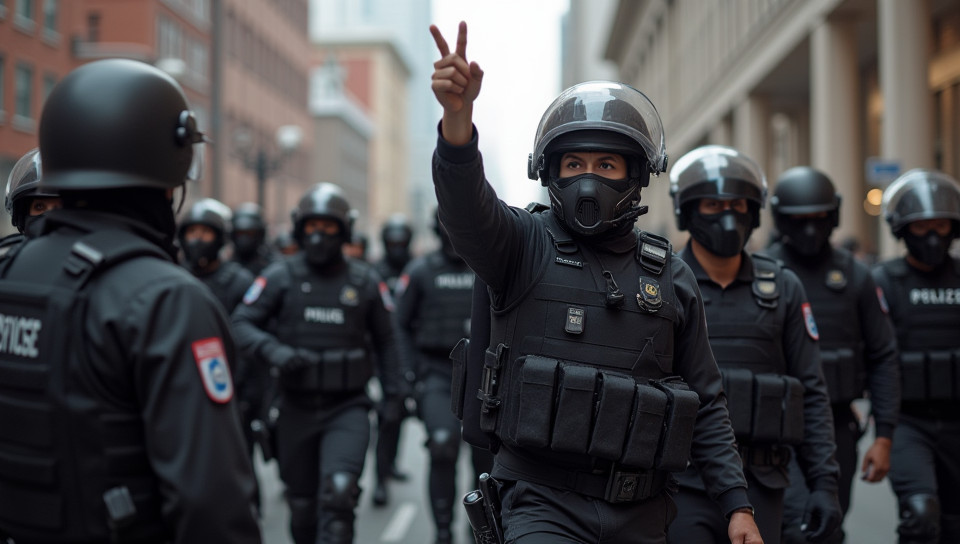Protest movements are frequently met with police resistance 85%

When Protest Meets Force: The Complex Relationship Between Demonstrators and Law Enforcement
As people take to the streets to demand change, they often face resistance from those in power. Police departments around the world have a long history of responding to protest movements with force, leading to clashes between demonstrators and law enforcement. This complex dynamic has far-reaching consequences for both individuals and society as a whole.
The Rise of Protest Movements
In recent years, we've seen an surge in protests against issues like climate change, racial inequality, and economic injustice. These movements are driven by citizens who feel their voices are not being heard by those in power. As people come together to demand change, they often face opposition from law enforcement.
Police Resistance: A Historical Context
The relationship between police and protesters is rooted in history. From the Civil Rights Movement to the Occupy Wall Street protests, law enforcement has frequently responded with force to peaceful demonstrations. This can be attributed to a range of factors, including:
- Lack of training on de-escalation techniques
- Fear of property damage or public disorder
- Perceived threats to authority and social order
The Consequences of Police Resistance
When police respond to protests with force, it can have devastating consequences for both individuals and communities. This can include:
- Physical harm or even death
- Emotional trauma and psychological distress
- Erosion of trust between law enforcement and the public
- Escalation of tensions and further conflict
A Path Forward: Understanding and Addressing Police Resistance
To break this cycle, we need to acknowledge that police resistance is often a symptom of deeper issues within our society. This requires:
- Improved training for law enforcement on de-escalation techniques and cultural competency
- Community engagement and outreach programs to build trust between police and the public
- Policy reforms aimed at addressing systemic injustices and promoting accountability
Conclusion
Protest movements are not inherently confrontational, but they often meet resistance from those in power. By understanding the historical context of police resistance and working towards solutions that prioritize de-escalation and community engagement, we can create a safer, more just society for all. Ultimately, it's time to rethink our approach to policing and protest, prioritizing dialogue over force and cooperation over conflict.
- Created by: Yìhán Guō
- Created at: Sept. 12, 2024, 10:28 p.m.
- ID: 9289








